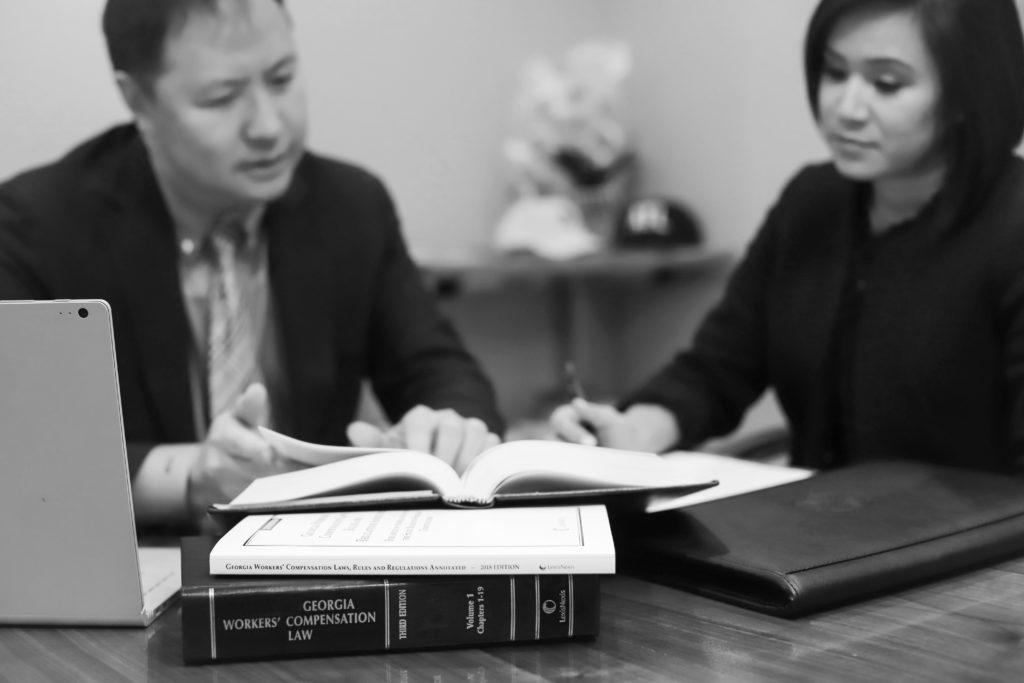
Sustaining an injury at work can be a terrifying and confusing experience. Seeking medical treatment and ultimately paying for treatment only adds to the fear and confusion. Federal and Georgia law tries to minimize the fear and confusion through its Workers’ Compensation regulations. These government entities primarily developed their regulations for the benefit of workers and the protection of companies. Secondary to this development goal was making the Workers’ Compensation process easy for injured employees to understand and maneuver. Despite their efforts, some injured employees still find the whole process overwhelming and seek the help of a licensed attorney. State law fully supports seeking legal advice but it is important that the injured person (called the claimant when she is involved in a lawsuit) work closely with her attorney to ensure a fair resolution to a Workers’ Compensation claim.
Establishing a close working relationship with an attorney begins at the claimant’s first meeting with a perspective attorney. During this initial consultation, the attorney will intently listen to the claimant in an effort to gather as much information as she can about the claimant’s work accident, medical treatment, current job duties, job history, and income. The claimant can assist the prospective attorney by bringing certain information to the first meeting. This information includes the accident report, medical records relating to the injury, and the names and contact information of physicians who treated the injury. A claimant should also bring employment information to the first meeting. The employer’s name and address, documentation of earned wages, hire date, and any received Workers’ Compensation board forms are extremely helpful. Being prepared for an initial meeting with a prospective attorney sets the tone for all future interactions and can effect the ultimate outcome of a case. Doing some research and preparing for the meeting will ensure that a claimant gets the help she needs.

